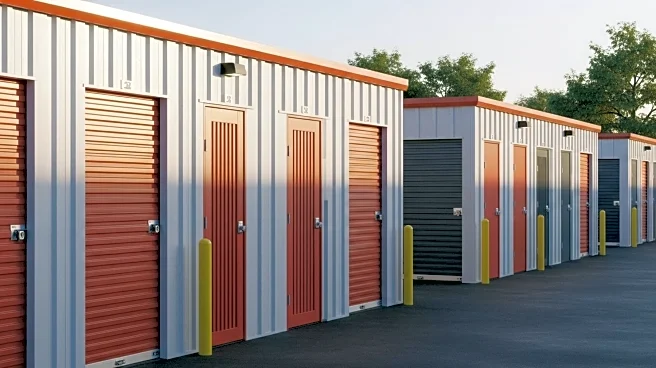What is the story about?
What's Happening?
The U.S. self-storage market is projected to experience substantial growth from 2025 to 2032, according to a detailed market analysis. The report provides comprehensive insights into the current state and future prospects of the industry, highlighting technological advancements, investment opportunities, and market economics. Key players such as Life Storage, National Storage Affiliates Trust, and CubeSmart are identified as major contributors to the market dynamics. The study includes a SWOT analysis and examines market segmentation by product type, application, and geography, offering stakeholders valuable information for strategic decision-making.
Why It's Important?
The anticipated growth in the U.S. self-storage market is significant for various stakeholders, including investors, businesses, and consumers. As demand for storage solutions increases, driven by factors such as urbanization and consumer behavior shifts, companies in the sector are likely to see enhanced revenue opportunities. The expansion of climate-controlled and portable storage units reflects evolving consumer preferences and technological integration, which could lead to increased competition and innovation within the industry. This growth also suggests potential impacts on real estate markets and urban planning, as storage facilities become more integral to community infrastructure.
What's Next?
The report suggests that stakeholders should prepare for increased competition and innovation in the self-storage market. Companies may need to focus on strategic investments in technology and customer service to maintain a competitive edge. Additionally, regulatory factors and consumer behavior trends will play crucial roles in shaping the market's future. Businesses are encouraged to explore emerging opportunities and adapt to changing market dynamics to capitalize on growth potential.
Beyond the Headlines
The growth of the self-storage market may have broader implications for urban development and real estate. As storage facilities become more prevalent, they could influence zoning laws and community planning. Furthermore, the integration of technology in storage solutions might lead to shifts in consumer expectations and service delivery models, potentially affecting related industries such as logistics and transportation.















